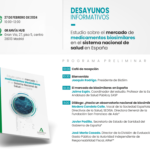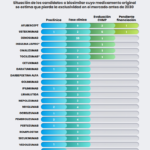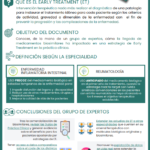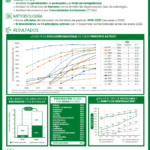In the European Union (EU), the biosimilar drugs They have been used in clinical practice since 2006; although its market share has grown at different rates depending on the Member State and the product category.
A report from the consultancy specialized in the pharmaceutical sector IMS Health on the evolution of the market from 2007 to March 2013 presented at the 12th International Conference on Biosimilar Medicines confirms this different behavior in the EU countries. Thus, for example, while in Germany new launches have a boom in the market from the outset, in Spain or Italy exponential growth occurs after several months.
According to the IMS Health report, the main barriers faced by biosimilar drugs in its access to the market are: national legislation and the degree of acceptance by doctors, which is also very different depending on the drug. Some obstacles that expert voices attribute to the lack of an adequate information and training policy "essential to implement a correct knowledge of the biosimilar medicine", according to the professor of the Department of Pharmacology of the Autonomous University of Barcelona, Fernando deMora.
With the aim of improving the information available on these drugs and making it easier for all decision-makers (including scientific societies, health care professionals and competent authorities as well as patients and patient organizations) to be able to base their decisions regarding these drugs , the European Commission (EC) has drawn up, through thePlatform for Access to Medicines in Europe, a consensus briefing paper on biosimilars: 'What you should know about biosimilar medicines'.
"The CE guarantees the high quality, safety and efficacy of approved biosimilar medicines in relation to reference products"
This report, which contains scientific and regulatory information on biosimilar drugs and common doubts are resolved, is the consensual result of the study carried out by a multilateral working group made up of representatives of interested parties from all over Europe, including: the national health systems of the EU Member States, the patient, medical and industry associations through key bodies such as the European biotechnology employers' association (EuropaBio), the European Association for Generic Medicines (EGA) and the European Federation of Pharmaceutical Industries and Associations (EFPIA extension), among others.
clear messages
One of the most outstanding points of the document is the existing consensus among all interested parties that "the availability of biosimilar medicines favors competition, improves patient access to biological medicines and contributes to the financial sustainability of the health systems of the EU".
“In general terms, biosimilar medicines are beginning to provide the expected advantages: offering doctors and patients other treatment options and making it possible for health administrations to access a broader range of tools to better manage health spending”, it was stated. point in the document, available on the EC website.
In a conference organized last March by the Ministry of Health, Social Services and Equality and the Spanish Association of Generic Medicines (AESEG) in collaboration with the EGA, it was noted that, between now and 2020, biosimilar medicines in Spain will generate savings of 1.500 million euros. A saving that, according to the experts, could increase as of that year as a result of the expiration rate of patents for new biological products. It is estimated that, by then, biological drugs worth 100 million dollars will lose the patent. Worldwide, there are currently more than 500 biologic drugs in development and approximately 100 molecules licensed for commercialization, most of them patents that will expire in the next 5-10 years.
There is also a consensus that "it is essential that physicians and patients share a deep understanding of biological medicines, including biosimilars, and that they express confidence in the use of any of the therapies or treatments." For experts this can be achieved with a solid regulatory framework and effective and transparent risk management.
The document, however, does not include aspects related to "interchangeability" and/or the replacement of a reference drug by a biosimilar drug. The working group led by the Platform for Access to Medicines in Europe did not study these issues. The EC understands that decisions on "interchangeability" and/or substitution depend on the competent authorities of each country.
They are not generic
The document also makes it clear that biosimilar medicines are not generic medicines; and points out and goes into detail about the main differences: clinical development, regulatory aspects and development cost. Biosimilars require a significant investment in time and resources. Its development takes between 8 and 10 years and costs between 75 and 200 million dollars, in addition to the consequent clinical trials in which more than 500 patients are usually involved.
Biosimilar medicines are manufactured to the same standards as other biologic medicines: “the development of a biosimilar medicine is very similar to that of reference biologic medicines, based not only on product development but on a comprehensive “comparability” program with the reference drug. As stated in the EC consensus document, the "comparability" exercise is based on a robust comprehensive comparison between the biosimilar product and the reference medicine in terms of quality, safety and efficacy. “The «comparability» between the biosimilar drug and the reference is the basic principle of the development of biosimilars”, it is explained.
“Biosimilar medicines are manufactured following the same standards as other biological medicines”
Therefore, there is also a consensus that, once approved, a biosimilar drug and its reference drug are assumed to have the same safety and efficacy profile, which implies the same level of adverse reactions. This document, with which the EC endorses the quality, safety and efficacy of approved biosimilar medicines in relation to the reference products, is framed within the Corporate Responsibility Process in the Pharmaceutical area initiated in September 2010 by the EC itself for, among other purposes, promoting better access to medicines after their marketing authorization.
Eugenia Garrido
Generic Coordinator




